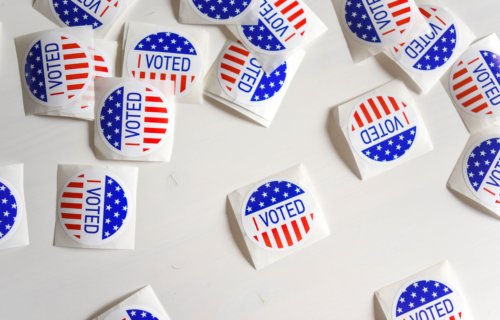COLUMBIA, Mo. — Does putting a limit on how much money a candidate can raise and spend on their campaign help promote more competitive and fair elections? Doesn’t look like it, according to a new study from the University of Missouri.
Researchers at UM say that campaign finance reform efforts usually have no beneficial effect at all on the competitiveness of state legislative elections. Moreover, their study shows that some reforms, such as limiting corporate political spending or reducing public election financing, can give the incumbent an unfair advantage.
Jeff Milyo is one of the study’s main authors and professor/chair of the Department of Economics in the MU College of Arts and Science. He says his research on this topic is superior to earlier projects conducted prior to “Citizens United v. Federal Election Commission.”
That case ultimately ended in a ruling by the Supreme Court that no state has the right to stop a corporation from spending its money on political advertising. Such a state policy would be in violation of the First Amendment, the Supreme Court declared. Interestingly, this latest analysis concludes that the SCOTUS decision in this case led to a boost in campaign competition.
For their study, the research team investigated the competitiveness of various state legislature elections before and after various changes to campaign laws.
“Our analysis of nearly 66,000 state contests over 30 years — from 1986 to 2018 — reveals that most campaign finance reforms have little impact on state legislative elections,” professor Milyo explains in a release. “But if anything, the much-maligned Citizens United decision has led to an increase in electoral competitiveness. That decision, which struck down regulations in a number of states, provides a kind of natural experiment to examine the relationship between corporate political spending and the incumbency advantage in state legislative elections.”
This research also calls into the questions the benefits of so-called “clean money” reforms. These reforms state that all candidates in a state legislature election be provided with the same amount of public money to run their campaigns. In theory, this should lead to a fairer campaign season, but in reality these reforms usually end in the incumbent enjoying an advantage.
“Challengers need to be able to raise and spend money to overcome the many advantages that incumbent legislators enjoy in elections,” professor Milyo concludes. “That’s why campaign finance reforms that limit political spending do not increase competitiveness in elections and sometimes have the opposite effect as might have been intended.”
The study is published in PS: Political Science and Politics.
